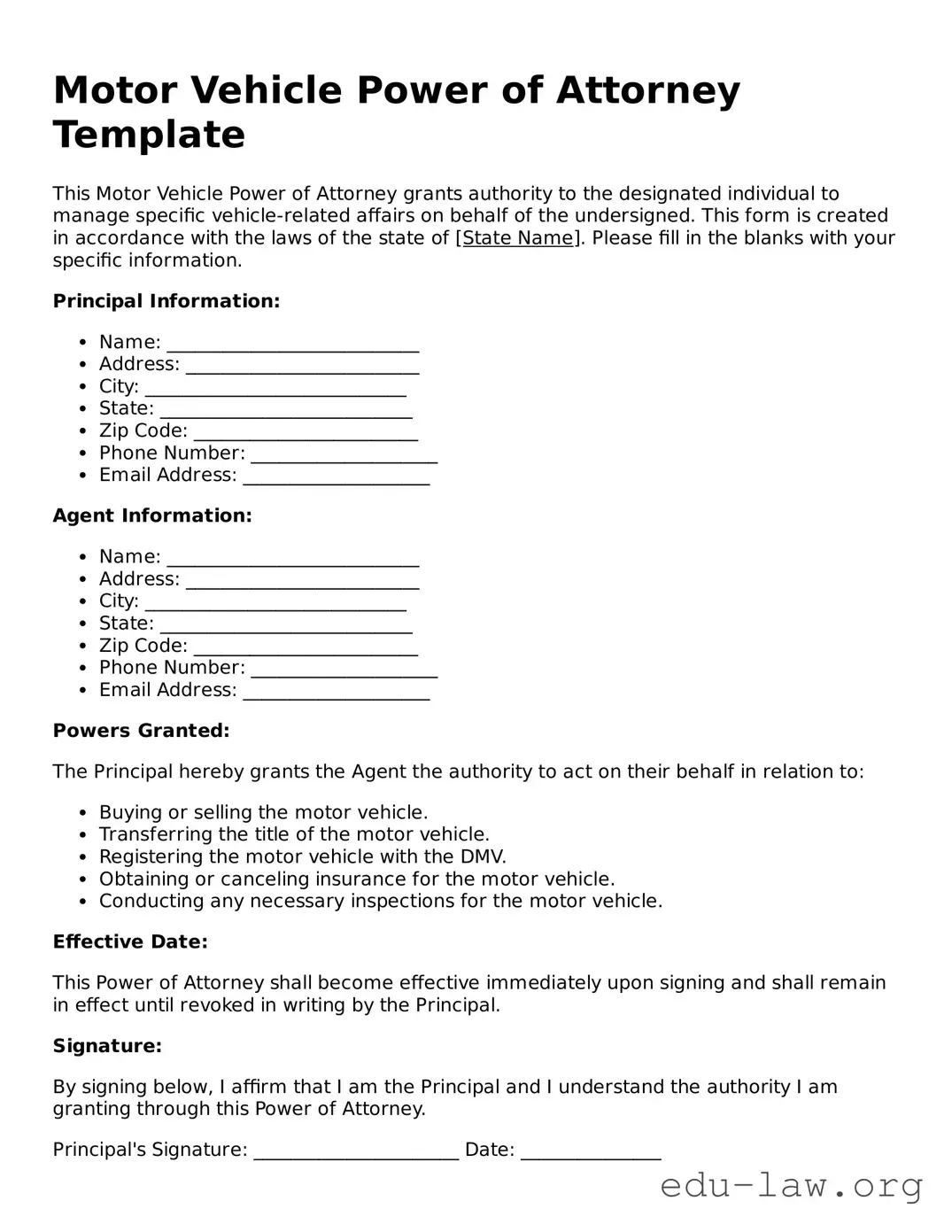What is a Motor Vehicle Power of Attorney form?
A Motor Vehicle Power of Attorney form is a legal document that allows one person, known as the "principal," to designate another person, referred to as the "agent," to handle specific tasks related to the principal's motor vehicle. This can include signing documents, transferring the title, or registering the vehicle in a different name. It is especially useful when the principal cannot be present to complete these actions themselves for various reasons, such as being out of state or having health issues.
When should I use this form?
This form is typically used when you need someone to manage your vehicle-related affairs while you are unable to do so. For instance, if you are selling your car but cannot attend the transaction, giving your trusted friend or family member power of attorney allows them to finalize the sale on your behalf. Additionally, if you are purchasing a vehicle but cannot attend the dealership, this form can allow your agent to handle the registration process for you.
How is the form completed?
To complete the Motor Vehicle Power of Attorney form, both the principal and the agent need to provide specific information, including names, addresses, and the details of the vehicle involved. The principal must sign and date the document to make it legally binding. It's also recommended to have the form notarized to ensure that it is valid and can be accepted by motor vehicle departments or other entities involved in the transaction.
Is there a specific duration for this power of attorney?
The duration of the Motor Vehicle Power of Attorney can vary based on the principal's wishes. You can specify a start and end date on the form. If not specified, it typically remains in effect until the principal revokes it or until the specific task is completed. Always clarify your intentions to avoid confusion and ensure that your agent knows how long their power will last.
Can I revoke this Power of Attorney?
Yes, you can revoke the Motor Vehicle Power of Attorney at any time. To do this, a written notice is generally required. This notice should be communicated to the agent and should include the date of the revocation. It is also wise to notify any parties who may rely on the authority granted through the power of attorney, such as a dealership or motor vehicle department, to prevent any misuse of the document.
What happens if I do not use this form when needed?
If you choose not to use the Motor Vehicle Power of Attorney when needed, you may face challenges in managing your vehicle transactions. This can lead to delays or complications in selling or registering your vehicle. In some cases, you may be unable to complete important transactions if you are not present to sign necessary documents. Taking proactive steps now by preparing this form can save you from potential stress in the future.
